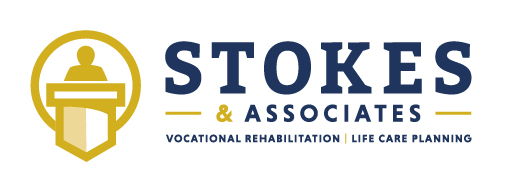Estimating Future Wage Earning Capacity
An article appearing in the Journal of Forensic Vocational Analysis, Vol. 17, 1. Summer 2017, by Beverage & Durant, critiques the American Community Survey to determine if it is a valid instrument to estimate future earning capacity. The authors note that it has been found from longitudinal research on the American Community Survey (ACS), Current Population Survey (CPS), and the Survey of Income Program Participation (SIPP) that census-measured disability is largely transitory. They note that several economic researchers have posited that any work-life expectancy model, which assumes that census-disability measures are permanent conditions is empirically invalid. The authors further note that the findings in this current study empirically confirm the longstanding objections to the use of census data as a valid instrument to estimate future earning capacity. They further note that the ACS is highly subjective and can be completed by someone else other than the individual in question. The authors note that furthermore, the responses to the questions are based on the individual’s opinions and not on medical evidence, thus reliability and validity of the survey is extremely questionable.
A criticism of the use of the ACS by the authors is that the federal government did not create the ACS to be utilized in the individual (N = 1) context; rather, it was designed to be used for macroeconomic policy decisions. The authors note that there is not sufficient evidence to demonstrate that the data from the ACS provides accurate estimates of future earning capacity or employability for an individual. The authors note that the problem of utilizing a macroeconomic survey was that it was not designed for the individual context for making assumptions about the disability status, individual treatment goals, vocational rehabilitation outcomes, and future earning capacity. The authors note that the ACS alone is unable to take individual differences into account that research clearly indicates play a significant role, such as parental educational attainment, medical history, and individual physical or psychological limitations. The authors note that for these reasons, conclusions about an individual’s future earning capacity losses due to disability cannot be solely based upon the census data or upon the ACS.
The authors conclude that the measurement of the impact of disability on an individual’s future earning capacity is a complex matter. They further conclude that the available peer-viewed research and the Bureau of Census are quite clear that the American Community Survey was not designed for, and is not a valid instrument for measuring employment and future earnings for disabled individuals. They further note that only when the specific conditions of an individual are evaluated at the micro level, (i.e. education attainment, familial history, intelligence and personality, testing data, medical and psychological evidence) can the degree of disability and other confounding variables be properly accounted for in a vocational evaluation. They note that until an evaluation is completed, utilizing government sources of disability reporting will not be reliable and valid as the foundation for measuring the future earning capacity. Therefore, work-life expectancy for specific individuals cannot be determined for the same reasons.
We offer complimentary consultations concerning "hypothetical matters."
To strategize with one of our vocational experts or life care plan experts at Stokes & Associates please call David Barrett at 504-454-5009, visit our website, www.stokes-associates.com or email dbarrett@stokes-associates.com.
Larry S. Stokes, Ph.D.
Aaron Wolfson, Ph.D.
Lacy Sapp, MHS, CRC, LPC, LRC, CLCP
Todd Capielano, M.Ed., LRC, CRC, LPC, CLCP
